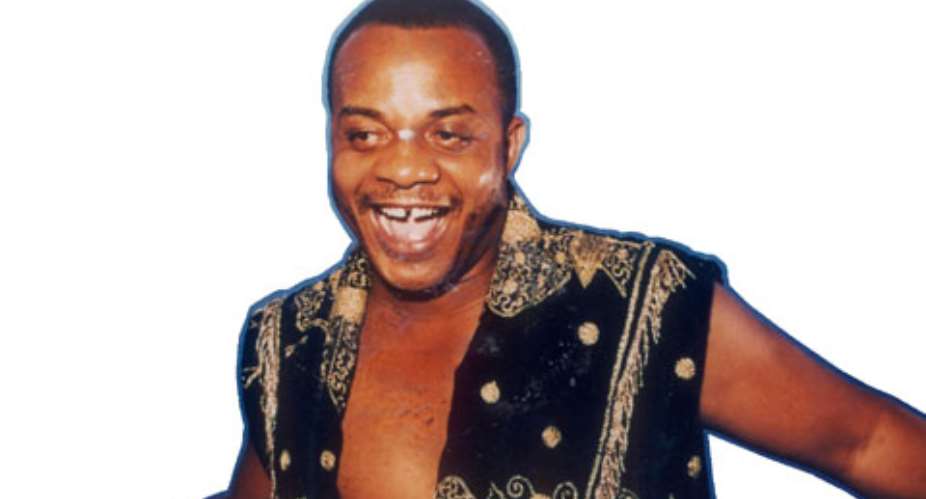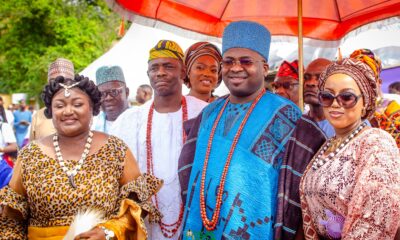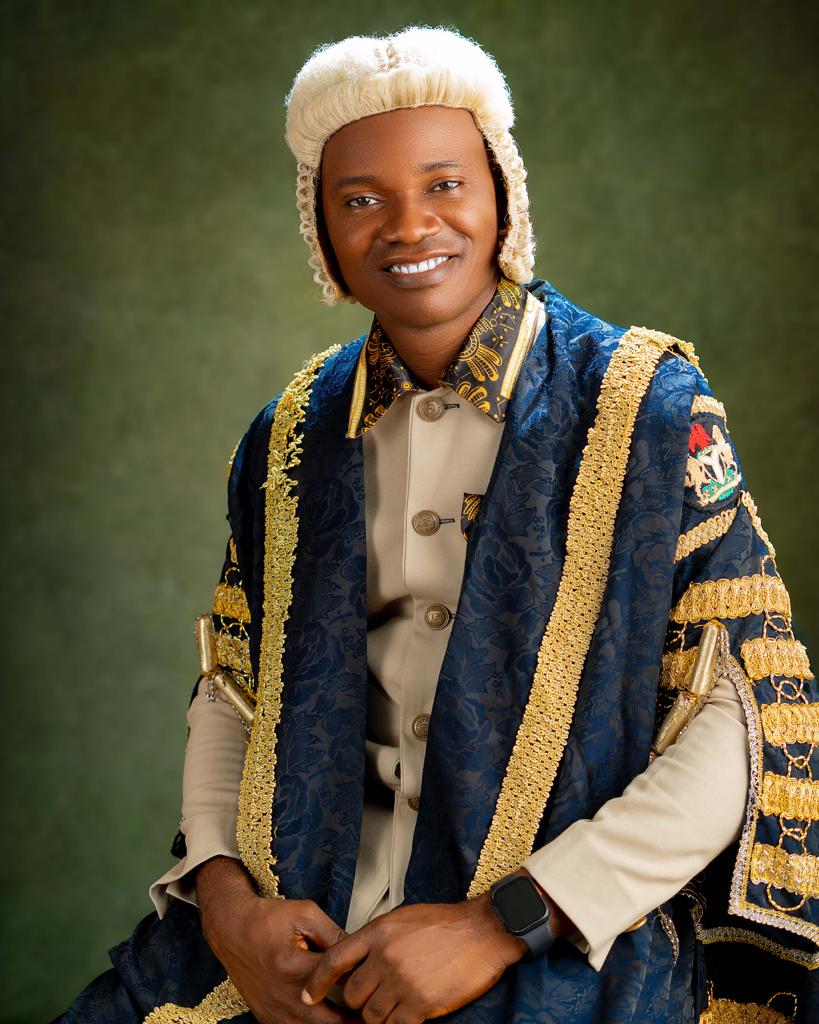EDITORIAL
Before Nigerian Music Went Global, Bright Chimezie Was Already Changing the Game

Long before modern Nigerian music found a global audience, artists across the country were innovating and experimenting with sound—pushing boundaries, creating new genres, and reinventing existing ones.
Segun Adewale introduced Yo-Pop, blending funk, jazz, and reggae. Tunde King brought a modern edge to Juju music, while Haruna Ishola popularized Apala. As these artists shaped the music scene in Western Nigeria, a new sound began to emerge from the East in the 1980s—one that was as distinctive as its creator.
Bright Chimezie, born on October 1, 1960, in Umuogba Ekeoba, Umuahia (present-day Abia State), pioneered Zigima, a sub-genre of highlife music that mixed acoustic rhythms with a call-and-response vocal style. But Zigima was more than just music—it was a platform for cultural commentary. With humor and wit, Chimezie used his songs to address serious issues like colonialism, economic exploitation, and the erosion of African identity.
The name Zigima comes from the Igbo phrase “o zi gi ma”, meaning “the message everyone should know.”
Chimezie’s musical journey began in his local church, where he was a chorister and instrumentalist by age 10. His passion deepened in secondary school at Eke Oba Community Secondary School, where he enjoyed music by George Benson, Bobby Benson, and Hot Chocolate. After graduating in 1976, he joined the Modernised Odumodu Cultural Dance Group—a music troupe known for its storytelling. The group gained popularity across Eastern Nigeria until its disbandment in 1979.
After Odumodu, Chimezie’s musical aspirations took him to Lagos. There, he performed at popular clubs like Phoenician Night Club, Gondola Club, and Tee Mac Connection at Mama Koko Hotel, Ebute-Metta. Simultaneously, he worked on demo recordings and briefly served in the Nigerian Customs Authority (1980–1983), where he was the lead vocalist in the Customs and Excise Dance Band.
In 1984, he released his debut album, Respect Africa, under Rogers All Stars Recording Company. The album featured tracks like “Nne Oma,” “I’ve Got A Rhythm,” and the breakout hit “Because of English”—a satirical recount of being punished in school for speaking vernacular.
Chimezie followed up with songs like “Oyibo Mentality” (1989), which critiqued the demonization of African spirituality and the portrayal of evil as Black. In “African Style” (1990), he shared his humorous experience of eating ogbono soup while abroad. The song includes the unforgettable lines:
“In the year 1974, I travel to oyibo man country, ala bekee, obodo onye ocha,”
and
“Police, he’s committing suicide / the Black man wey dey here, he’s committing suicide.”
“Oyibo Mentality,” with its bold social critique and catchy rhythm, has endured as one of Chimezie’s signature songs.
In the 1990s, Chimezie split his time between Umuahia, Lagos, and Abuja, balancing music and family life. In 2003, he returned permanently to Umuahia to raise his five children—Kelechi, Chukwuemeka, Chukwudi, Chinemeze, and Chidinma—with his wife, Chinyere Oyidiriya Chimezie.
Speaking to Vanguard in 2010, he explained his decision to step away from the limelight:
“By 2003, my kids were about to enter secondary school and if I had allowed them to start here (in Lagos), they would have taken up here as their first home,” he said. “I sell the African culture and tradition all over the world as an ambassador. So, I had to leave back to the East to groom my family.”
Known for his energetic stage presence and vibrant fashion—sleeveless Ankara tops, traditional caps, and beaded necklaces—Chimezie earned the nickname “Duke of African Music.” His routines featured acrobatics and rhythmic legwork that predated today’s viral dance trends. Before Zlatan Ibile or Poco Lee, there was Bright Chimezie.
Critics and writers have praised his cultural influence. Music critic and poet Dami Ajayi describes Chimezie as “philosophically sound,” crediting him with reshaping highlife into something poetic and conscious:
“Highlife was mostly about revelry, but Bright brought humor, message, and meaning. He carved a niche while promoting African ideology.”
Author and PR expert Toni Kan calls Chimezie a game-changer:
“When Bright Chimezie burst on the scene, it was like a breath of fresh air. Highlife was dominated by the likes of Osita Osadebe and Oliver De Coque—who were older and more traditional. Bright made it fresh, fun, and danceable. He’s the precursor to modern acts like Flavour, Humblesmith, and Ruffcoin.”
Chuks Nwanne, Guardian editor, sees Chimezie as more than a musician:
“He was a messenger. His music had strong themes about life and tradition. His dance style was unique, and his commitment to African values was unwavering. The song ‘African Style’ captures all that.”
Nwanne also revealed how Chimezie got the nickname Okoro Junior:
“At a disco party, he once requested African music from the DJ. People scoffed, calling him ‘Okoro man’ in a derogatory way. But he embraced it—and made it his brand.”
Though no longer a chart-topping artist, Bright Chimezie still performs, appearing at select events such as the Hi-Life Fest (Enugu, 2018), Afropolitan Vibes (Lagos, 2018), Boss FM Show (Abuja, 2020), and Macdon Classic Bar (Onitsha, 2021).
He may not dominate today’s airwaves, but his legacy is firmly cemented. Whether or not he evolves with current trends, Bright Chimezie remains a true original. The Zigima sound lives on—and so does his impact on African music.
Discover more from Asiwaju Media
Subscribe to get the latest posts sent to your email.
-

 ENTERTAINMENT6 days ago
ENTERTAINMENT6 days agoFrank Edoho Confirms Split From Second Wife Sandra Onyenuchenuya
-

 NEWS6 days ago
NEWS6 days agoMan Heartbroken As Girlfriend Of 2 Years Denies Him During Interview With YouTuber Asherkine At UNN
-

 POLITICS5 days ago
POLITICS5 days agoChristian Asaga Nwali Bags Award for Contributions to Community Development
-

 ENTERTAINMENT6 days ago
ENTERTAINMENT6 days agoNollywood Mourns As Actor And Producer Kayode Peters Reportedly Passes Away In Canada
-

 SPORTS7 days ago
SPORTS7 days agoAbakaliki FC Faces Kwara United Today in Federation Cup Final
-

 ENTERTAINMENT6 days ago
ENTERTAINMENT6 days agoUNN Student Becky Breaks Silence, Denies Claims Of Boyfriend Denial After Viral Outing With Asherkine
-

 NEWS7 days ago
NEWS7 days agoPhilanthropist Christian Asaga Nwali Commissions Bungalow for Elderly Widow in Ikwo
-

 ENTERTAINMENT2 days ago
ENTERTAINMENT2 days agoShocking! Davido Accused of Secret Dealings That Could Ruin His Career
-

 POLITICS6 days ago
POLITICS6 days agoSenator George Akume Resigns as Secretary to the Government of the Federation
-

 SPORTS6 days ago
SPORTS6 days agoAfonja Warriors Spice Up the Final, Leave Rice Boys with an Empty Bowl
-

 CAMPUS REPORTS6 days ago
CAMPUS REPORTS6 days agoKaduna, SMEDAN Launch ₦1 Billion Fund to Power Small Business Growth
-

 INSIDE NYSC6 days ago
INSIDE NYSC6 days agoOba Elegushi Graces NYSC Cultural Carnival in Lagos, Platoon 4 Emerges Winner






















